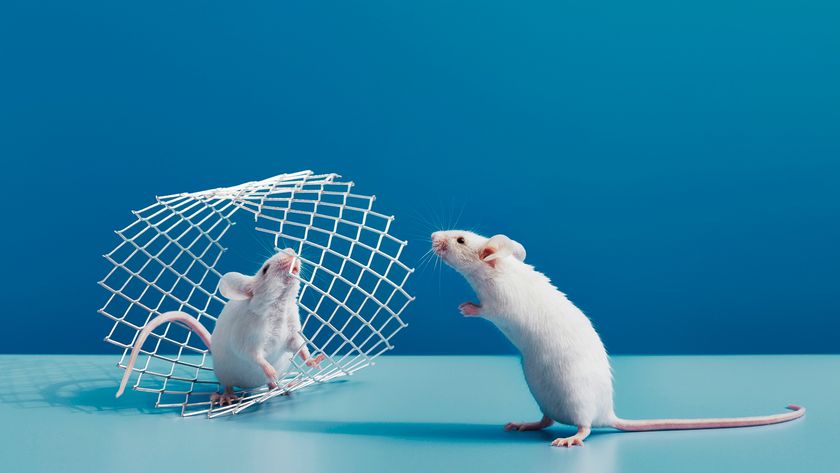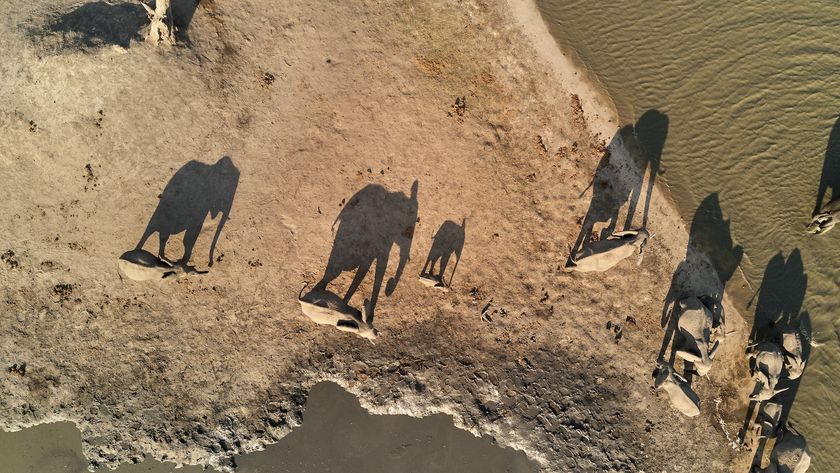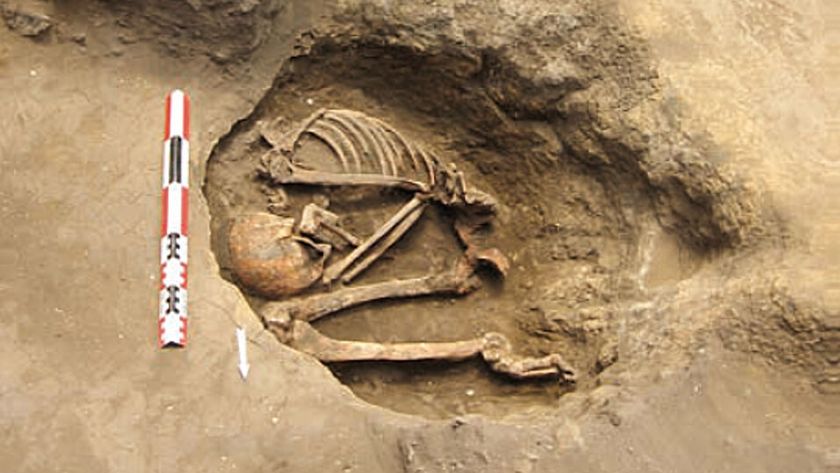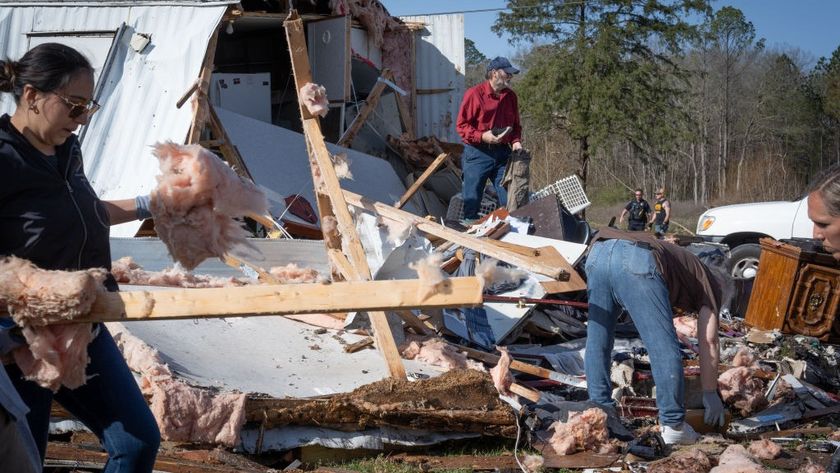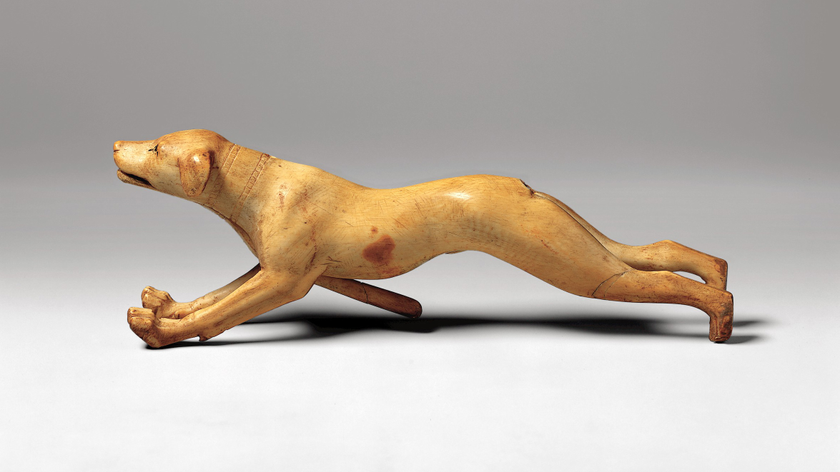Litter of Rare, Scruffy-Necked Wolf Pups Born in Virginia
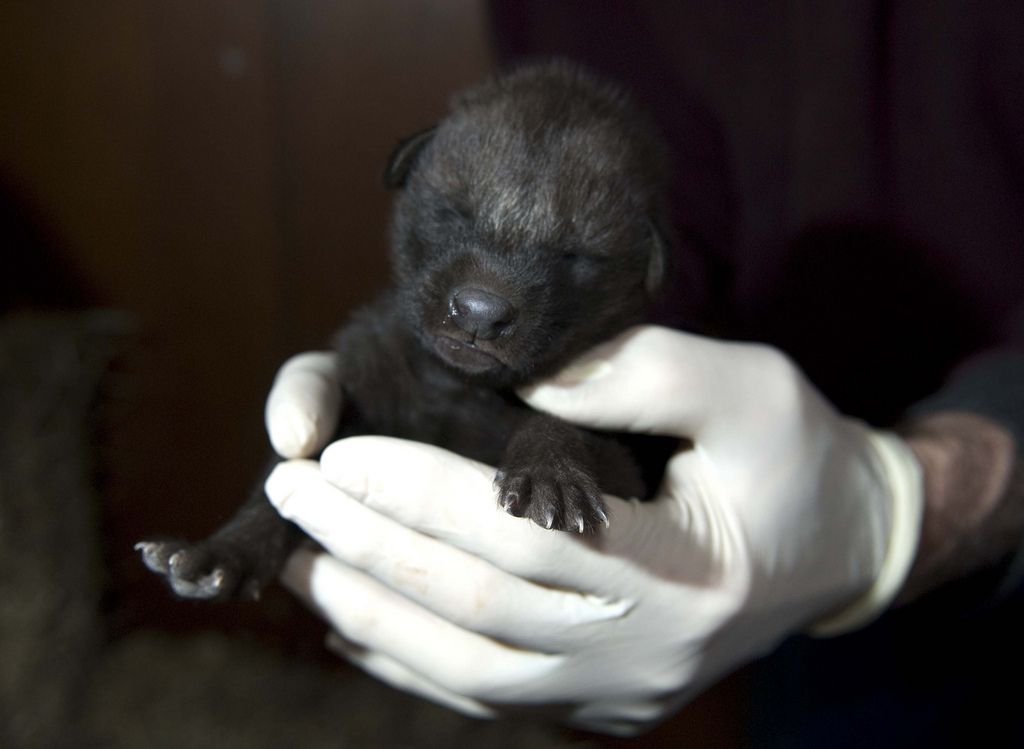
A conservation effort to breed rare maned wolves has resulted in four fuzzy bundles of joy in Front Royal, Va.
The litter of pups, born to an 8-year-old mother wolf named Salina and her 4-year-old mate Nopal, is the first at the Smithsonian Conservation Biology Institute (SCBI) in two years. The pups are part of an effort to breed these South American wolves under human care. The International Union for Conservation of Nature lists maned wolves as "near threatened," due to human activities encroaching on their habitat in Argentina, Bolivia, Brazil, Paraguay and Peru. There are about 20,000 maned wolves left in the wild, and only 20 percent of the animal's habitat remains.
“Every pup born here helps us understand more about the biology of this incredible species,” Nucharin Songsasen, an SCBI research biologist, said in a statement announcing the wolves' birth. “SCBI has a long history with the maned wolf, both in terms of studying the biology and maintaining the genetic diversity of individuals living under human care, as well as in conserving the animals in the wild.”
Maned wolves are difficult to breed in captivity, likely because of gastrointestinal disorders that plague the species. Nopal and Salina are on a new trial diet that is heavily plant-based, which may better approximate the sort of food maned wolves eat in the wild. SCBI researchers also have learned that maned wolf females must be around a male of their species in order to ovulate.
Salina had her black-haired pups on Jan. 5. They're under close watch by zookeepers, because maned wolf pup mortality is high — 50 percent die in the first month of life. The birth of the pups brings the SCBI's number of wolves up to 12. [See pictures of the pups]
The pups provide hope for the species' future, as Nopal is a top-tier male when it comes to ensuring genetic diversity in the species.
“To keep a high level of gene diversity, it is important that every genetically valuable individual reproduce,” said Melissa Rodden, coordinator of the Maned Wolf Species Survival Plan. “SCBI is leading the research on innovative tools that will help us ensure that that will happen.”
Sign up for the Live Science daily newsletter now
Get the world’s most fascinating discoveries delivered straight to your inbox.
You can follow LiveScience senior writer Stephanie Pappas on Twitter @sipappas. Follow LiveScience for the latest in science news and discoveries on Twitter @livescience and on Facebook.

Stephanie Pappas is a contributing writer for Live Science, covering topics ranging from geoscience to archaeology to the human brain and behavior. She was previously a senior writer for Live Science but is now a freelancer based in Denver, Colorado, and regularly contributes to Scientific American and The Monitor, the monthly magazine of the American Psychological Association. Stephanie received a bachelor's degree in psychology from the University of South Carolina and a graduate certificate in science communication from the University of California, Santa Cruz.
